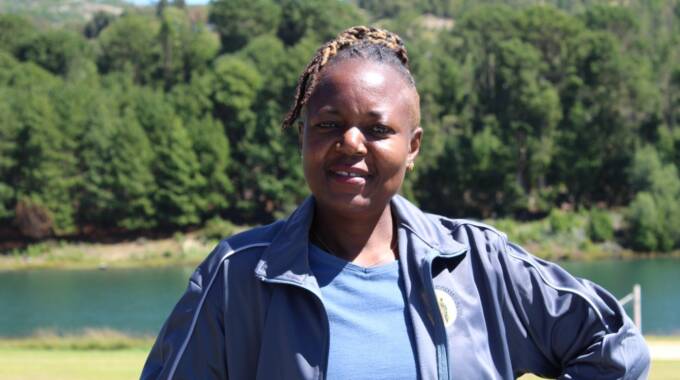
The Sunday Mail

Miriam Tose Majome
THERE is so much lawlessness in the education sector that one would be forgiven for thinking that the Education Act was suspended.
The Ministry of Primary and Secondary Education sometimes behaves so powerlessly when dealing with the many schools that have mushroomed in the past two decades.
The proliferation was due to low investment by both the Government and private sector in the education system when the economy faced challenges.
The result is the obtaining free-for-all chaos and confusion in the schools.
Just about anyone with a bit of money can now open a learning facility of whatever type and standard and call it a school, and immediately enrol learners.

In this file picture, children line up outside an unregistered school in Caledonia
All schools operating in Zimbabwe are supposed to be registered with the Ministry of Primary and Secondary Education.
“All schools” means both Government and non-government educational institutions, including preschools, primary schools and secondary schools of whatever nature and however owned. This includes private schools — whether or not partially funded by the Government.
All basic educational institutions should operate under the Ministry of Primary and Secondary Education and are all subject to Part V of the Education Act [Chapter 25:05], Section 15.
Operating an unregistered school is a criminal offence and the ministry is supposed to shut it down, but it seems to be overwhelmed.
The onus is on parents to verify the registration status of the school, but that is a luxury when their children fail to find places in established institutions.
Most non-government schools increase fees and levies without following legal procedures.
The ministry issues stern warnings to schools and does nothing about it. The cycle is repeated when schools reopen.
The economic environment makes it very difficult for schools to budget and operate normally and maintain standards.
It is sometimes necessary to increase fees to improve the quality of education, but this must be done in terms of the Education Act.
The ministry is supposed to monitor and physically inspect all schools — and not just Government schools — to ensure they are compliant with the law, but we see more of warnings than action because the non-compliance is now so rampant and brazen.
Normally, schools should not be commercial enterprises whose only motive are profits ahead of education.
Most of the new independent schools that have mushroomed are just business ventures.
Most do not offer facilities for extracurricular activities like sport, yet these have been scientifically proven to be a key component of basic education.
The ministry just turns a blind eye regarding provision of such vital facilities.
It leaves all that to the few good schools that remain, while the newer ones get away with not even trying or pretending to try to provide the legally prescribed holistic basic education for learners.
Fees for non-government schools
Section 21 of the Education Act forbids schools from increasing fees without the express consent of the Minister of Primary and Secondary Education.
Many schools just flagrantly ignore this provision, while some get around the law by factoring in hidden unsanctioned fees through extra charges for practical subjects, extracurricular activities, levies and various fundraising projects.
The application to the ministry has to set out the full details of the proposed fees or levies and the reason for the increase, as well as the basis upon which it is calculated.
Consideration will be given to the costs of operating and maintaining the school, and improving the facilities for learning.
The ministry can either approve the increase or amend and fix a new figure that is commensurate with costs of reasonably running a school of that type.
The approval is given only if the majority of parents pass such resolutions at a specially convened meeting.
There has to be proof that the proposed fee has been approved by consensus and a resolution of the parents at a meeting of the parents or guardians. The minutes of the meeting that resolved to increase the fees have to be attached as proof. However, most of the independent schools do not have parent representative bodies and do not hold any parent meetings as required by the law.
The school owners run the schools unilaterally like they would any other private business venture. That is the root of the problem of the entire basic education system because the regulator seems to have surrendered to the school barons.
Miriam Tose Majome is a commissioner with the Zimbabwe Media Commission.



